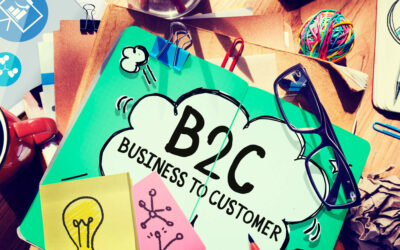Have you ever wondered what comes to mind when you hear the word “retail”? Perhaps an elegant row of tempting shop windows or attractive discounted items in a mall. This article will explain what retail is, its types, and its characteristics.
What is Retail?
Retail is a form of business that focuses on selling products or services directly to end consumers. In this context, sales can occur through various platforms, including physical stores and online platforms. The basic concept of retail is to bridge the gap between manufacturers or distributors and consumers.
It’s important to understand that retail is not just about selling goods but also creating a satisfying shopping experience for customers. This process involves various elements, including product presentation, customer service, and pricing strategies.
Differences Between Retail and Wholesale
Understanding the differences between retail and wholesale is crucial to better grasp how the retail business operates. While retail targets end consumers, wholesale businesses focus on selling in large quantities to intermediaries such as retail stores.
In wholesale business, the price per unit tends to be lower due to larger purchase volumes. On the other hand, retail sets higher prices per unit but offers convenience and a better shopping experience.
Types of Retail
Department Stores
Department stores, commonly known as supermarkets or hypermarkets, offer a variety of products under one roof. Consumers can find everything from food to electronic products.
Specialty Stores
Specialty stores offer specific products or services with a focus on niche markets. Examples include independent bookstores or sports equipment stores.
Discount Stores
Discount stores attract consumers by offering lower prices than other retail outlets. This can be physical stores or online platforms offering significant discounts.
Characteristics of Retail Business
Excellent Customer Service
Successful retail businesses prioritize customer service. By providing a positive experience, customers are more likely to return and even recommend the store to others.
Attractive Product Arrangement
Effective product arrangement can enhance the store’s appeal. Proper placement of products, lighting, and interior design can help customers find what they are looking for.
Efficient Stock Management
Good stock management is crucial. Excess inventory can lead to financial losses, while insufficient stock can result in lost sales.
Examples of Retail Businesses
Fashion Clothing Store
Retail businesses in the fashion industry offer a variety of clothing and accessories, focusing on the latest trends and consumer lifestyles.
Electronic Store
Electronic stores provide a range of technology products, from smartphones to household electronic devices. Customer service and product knowledge are key to success in this business.
Grocery Store
Grocery stores are examples of retail that offer everyday products such as food, beverages, and other household necessities. They often play an integral role in the local community.
With a deep understanding of what retail is, its differences from wholesale, its types, the characteristics of the business, and examples of successful retail businesses, you are ready to navigate or better understand the world of retail business.



